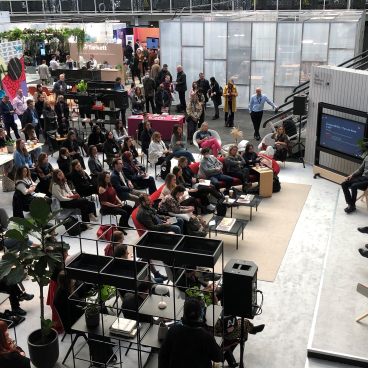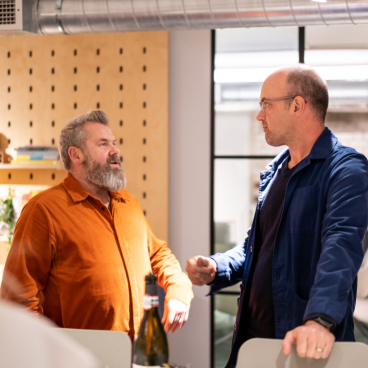Material Source Studio Presents: Manchester Property Outlook.
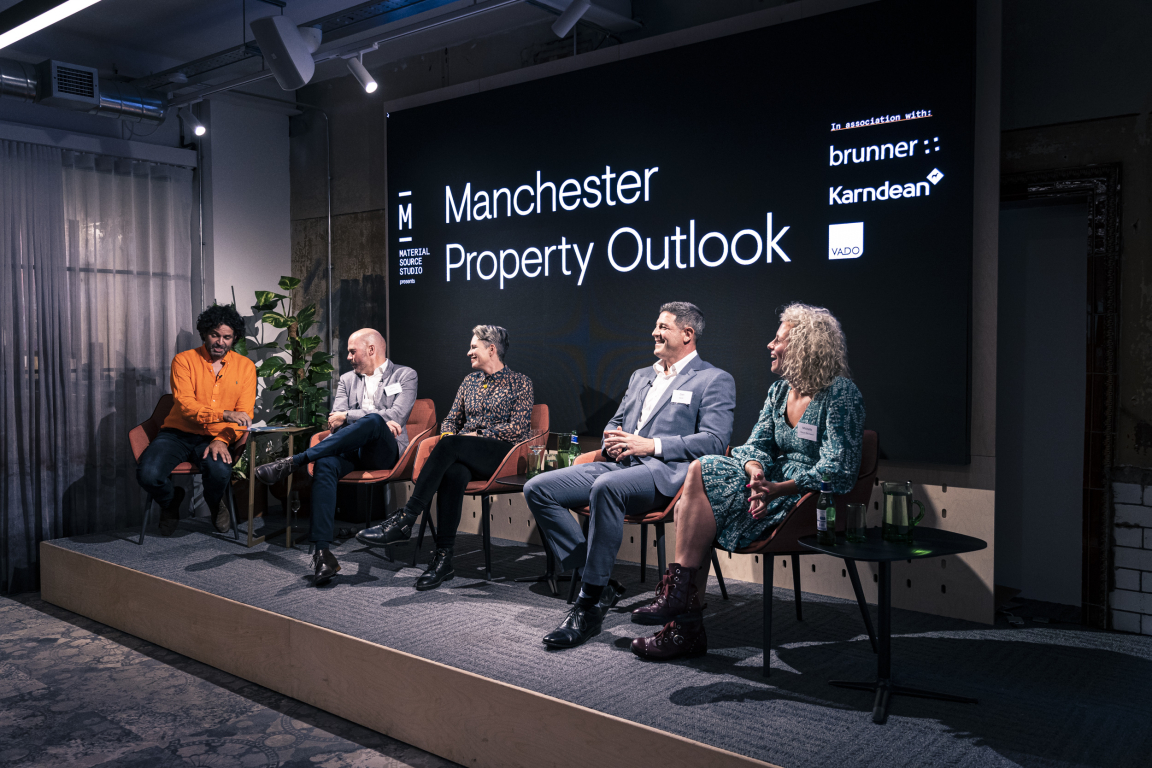
Credit: Tim Ainsworth
For our sixth, and penultimate, Material Source Studio Presents seminar of 2022, our four expert panellists discussed Manchester's Property Outlook.
As host David Smalley kicked off the discussion by saying - "few will disagree that Greater Manchester, as a city of commerce, has been in success mode for the last couple of decades with the property sector gaining much of the limelight." This sentiment was certainly mirrored by the views of our rich and varied panel from all corners of the industry: Chris Cheap, MD UK regions, Avison Young; Dan Hyde, development director, MEPC Limited; Shannon Conway, residential director, Glenbrook; Michelle Rothwell, founder, Watch This Space. However, there were also some clear areas raised for improvement.
As always, an hour was just enough time to scratch the surface of the night's topic. Here, we share some of the highlights tying into the city's past, present & future.
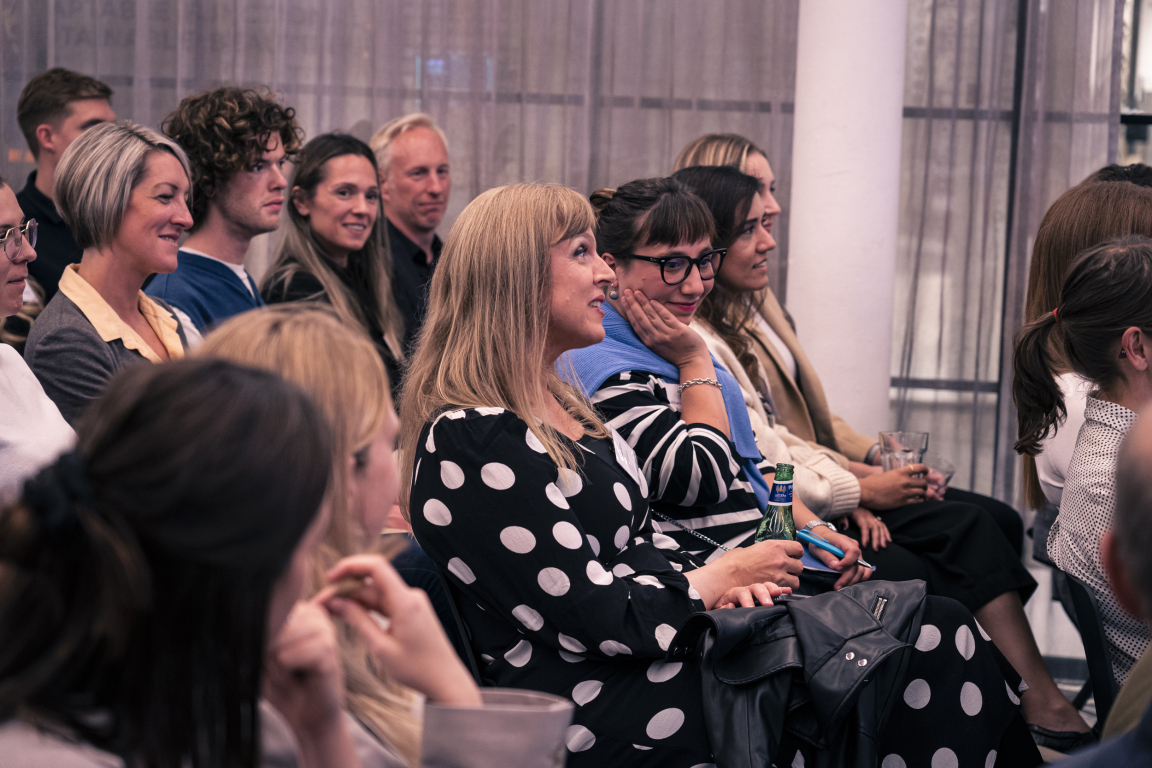
Credit: Tim Ainsworth
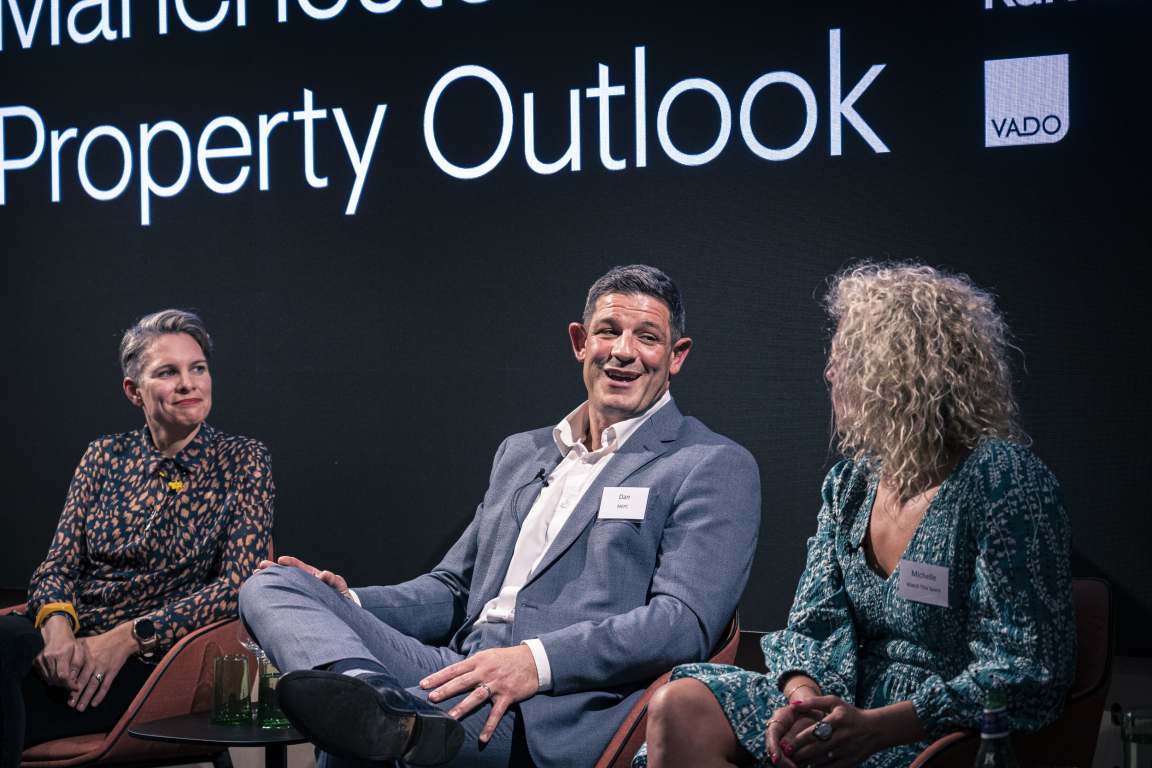
Credit: Tim Ainsworth
Past > Present
In order to look forward we often need to look back. David asked: "If we had to start again with Manchester’s property sector, what would we do differently?"
"I think what Manchester's done really well over the last 20 years is piece together the commerciality of the city in such a brilliant way", answered Chris. "But I think we've missed some huge opportunities in joining up some of the really fundamental placemaking teams in the city. We've done all this brilliant work, but then I'm not sure we always curate it well."
But is that changing? A hangover from the past, perhaps?
"Yes", continued Chris, "purely because we're moving into a world where design has become more important than it probably was. I also think we need to challenge briefs more. Take St Peter's Square for example. The architects challenged the brief and we ended up with something more radical than initially planned."
"Public realm connectivity" is something NOMA is fervently dedicated to, explained Dan - from sustainable green spaces to pedestrian and cycle routes. "20 years ago, no one wanted to live in the city centre. Whereas that's been reversed now. There's a real drive for people to come here and that's driving house prices. But I think what we need to be really focused on as investors in the city is to make sure that we keep an equitable city centre where there's a price point for everyone. Otherwise, we face a vanilla offering."
Shannon agreed: "I think that we're in danger of having an homogeneous population of young renters and first time buyers. And I think that's a big mistake. I would like to see change addressed, and public sector intervention may be required, giving people in later life attractive options to live in the city centre too."
Panellist Michelle is actively working on addressing that change with two new townhouse schemes. "We've just finished building some townhouses off Canal Street and in Spinningfields. It's about creating something different in the market because, ultimately, we're trying to create new investment for the city. We're trying to bring people to work in the city centre companies. Also encouraging people to start-up and run companies. So I feel like we need more affordable houses. And we also need some really high end houses too - a mix."
"What we also need is more good sized apartments which would appeal to more mature purchasers", added Shannon. "There's not really much being built now that someone can hang their hat on and say that's a brilliant example."
Not all people in mid to later life want to live in market towns – Shannon
A question from the audience prompted discussion around potential past failures in supplying the infrastructure needed to attract and retain a more family-based city population, such as doctor's surgeries and schooling.
"I think that's a very shrewd assessment," answered Chris, "where do you go to do your big shop? These things can prove challenging when trying to build communities. I think bravery is needed from the city council in distributing planning consent to make sure that infrastructure is there for the people that need it. And it's got to keep pace with commercial development."
Looking forward rather than backwards, Michelle highlighted the "chicken and egg" conundrum of increased demand from families that are here now and weren't before. "I think the way we're doing things is changing - both in that schools and doctors surgeries are now being built in the city centre - but also in that the habits of families are changing too - everyone does online shops now."
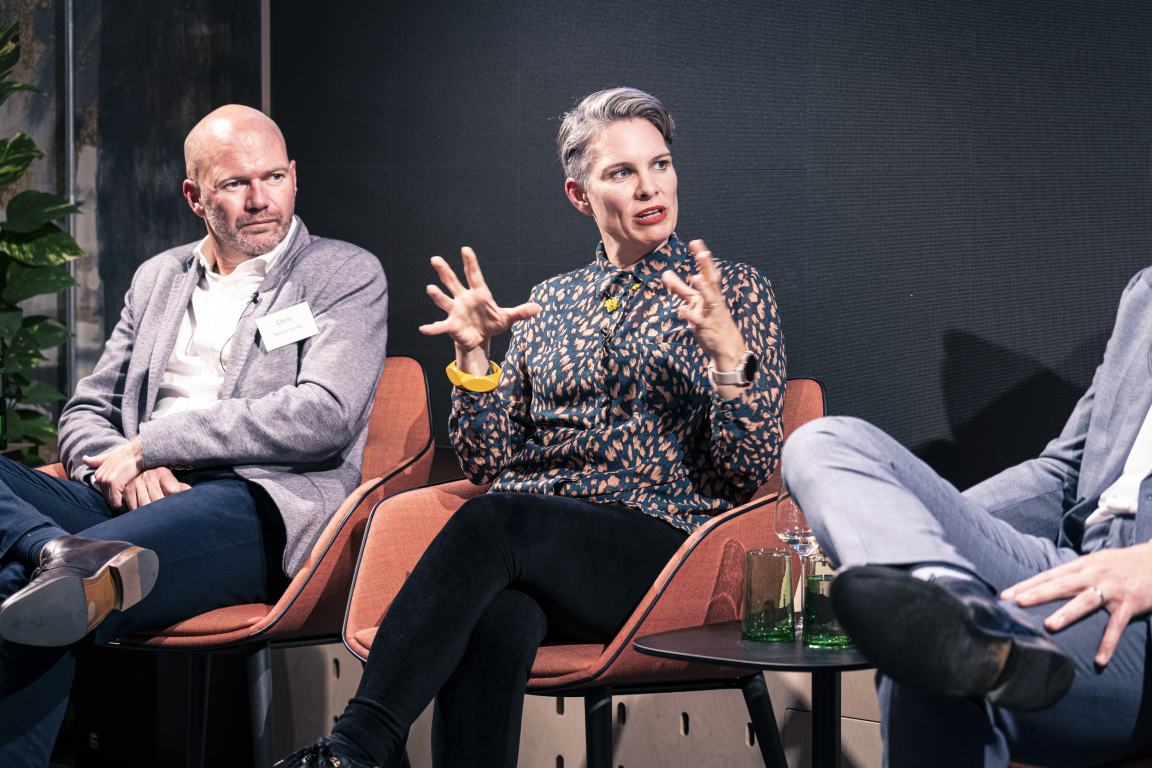
Credit: Tim Ainsworth
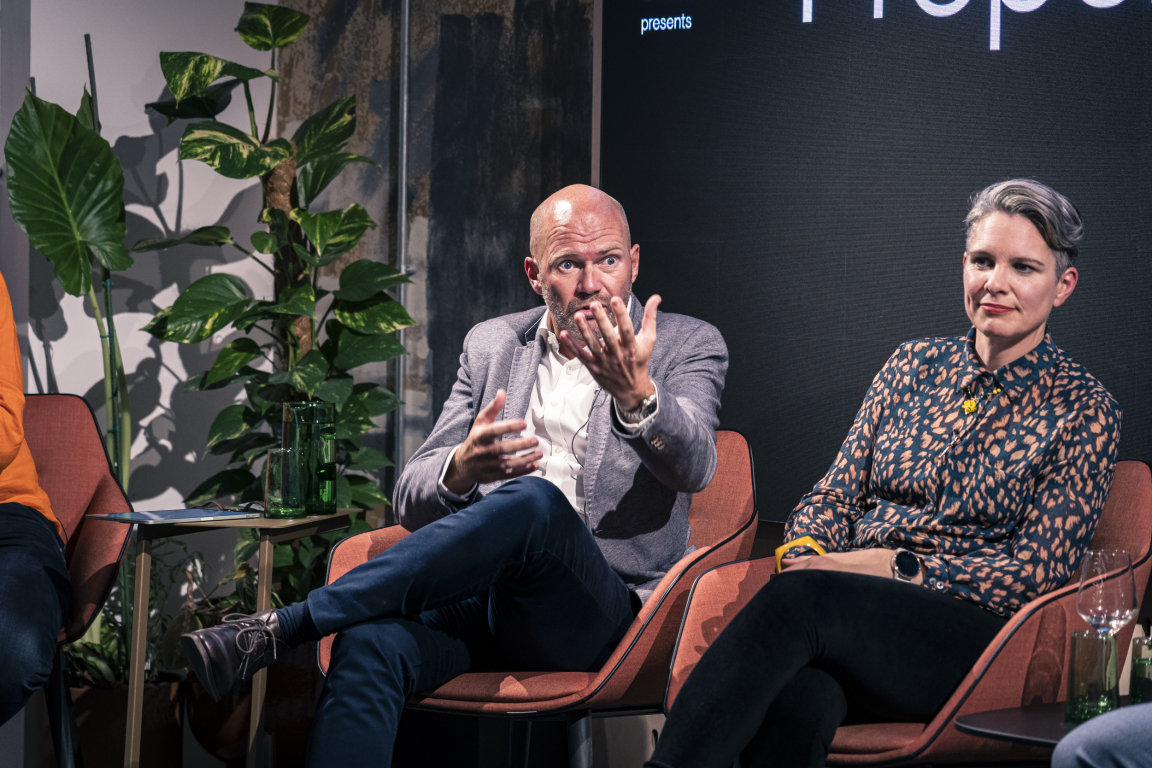
Credit: Tim Ainsworth
Taking a global view, "which other cities are doing it right?" asked an audience question.
From Paris leading the way in "15-minute cities" suggested by Dan; to the strength of community in Copenhagen and impressive "pocket parks" as highlighted by Chris; and East Germany's Freiberg - a child-friendly city championed by Shannon (with a book recommendation: Urban Playground by Tim Gill), a common (green) thread ran throughout: access to outside spaces.
The common consensus was that Manchester could do more to invest in a greener city centre. Mayfield Park - Manchester's first city centre public park, though slightly out of town - was heralded as a blueprint for the future. And closer to home, NOMA has launched its Plant NOMA initiative, a three-year partnership with the likes of the National Trust to promote city centre gardening "reflecting evolving market demands."
It's important to learn from the past - hindsight is a wonderful thing - Dan
Present > Future
The conversation then focused on the next chapter of Manchester city centre's life. The pandemic has undoubtedly impacted the property market - but how?
"When it comes to workspace occupiers", replied Chris, "they've never been so discerning. Whereas previously when you were engaging conversations about businesses relocating their workspace, you would have the financial director in the room saying 'how much is this going to cost me?' The reality is that now there's a realisation that the war on talent is very real and people are weaponising their workspaces accordingly. So, what that means is whether something is 28 square foot or 32 square foot goes out the window because it's about that space being right to deliver on retaining and attracting the best power.
People are weaponising their workplace in the war on talent - Chris
"As you'll all know, ESG is now fundamentally important to office development. Though, I think there needs to be a reeducation of the property market about how they approach rental terms around the office building, simply because it's costing developers. I believe we're going to move to a model where there's an entry price for a new building."
Continuing on the topic of ESG, Dan stated that in many cases it's the employees that look into the social value within a business that they either do, or may want to work for - "making sure it's genuine and authentic."
"But how you approach this in the modern world? If there is no kind of comparable evidence to say if we spend money on doing this, will we achieve that, it's a bit of a leap of faith. But it genuinely feels like it's happening."
We've never been full. But as of today, our buildings are all full. I think people want to come to an office space and think, "Damn! This looks great". But they also want flexibility - Michelle
"In the BTR market there was a lot of reactionary activity in response to the pandemic", commented Shannon. "We heard things like 'what we're going to do is make our walls movable so that the apartment can do all these different things.' And 'everybody needs a balcony'. But now, the emphasis is on flexibility in the communal spaces. We're building rooms into our schemes that can be used for everything from life drawing to yoga. The other thing is balconies - a hot topic. They actually work against communal gardens, as people feel they are being overlooked, so for schemes with big outdoor spaces the consensus is not to include balconies and instead to encourage community gatherings."
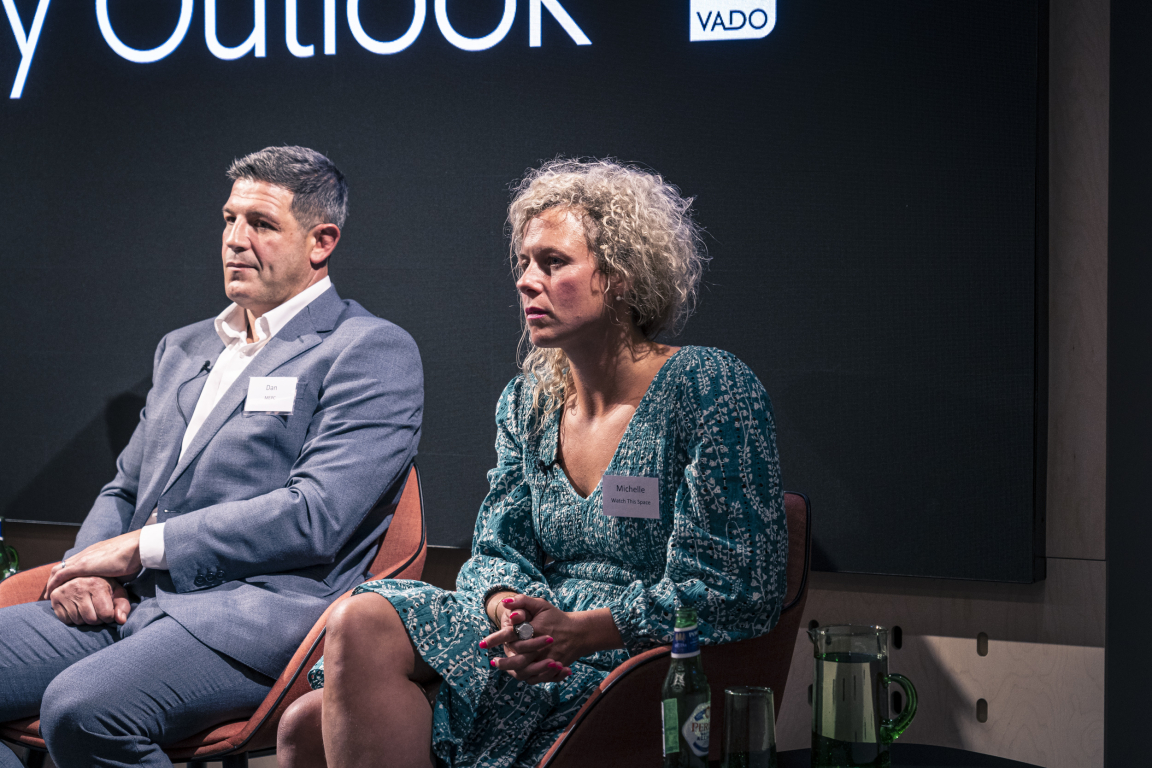
Credit: Tim Ainsworth
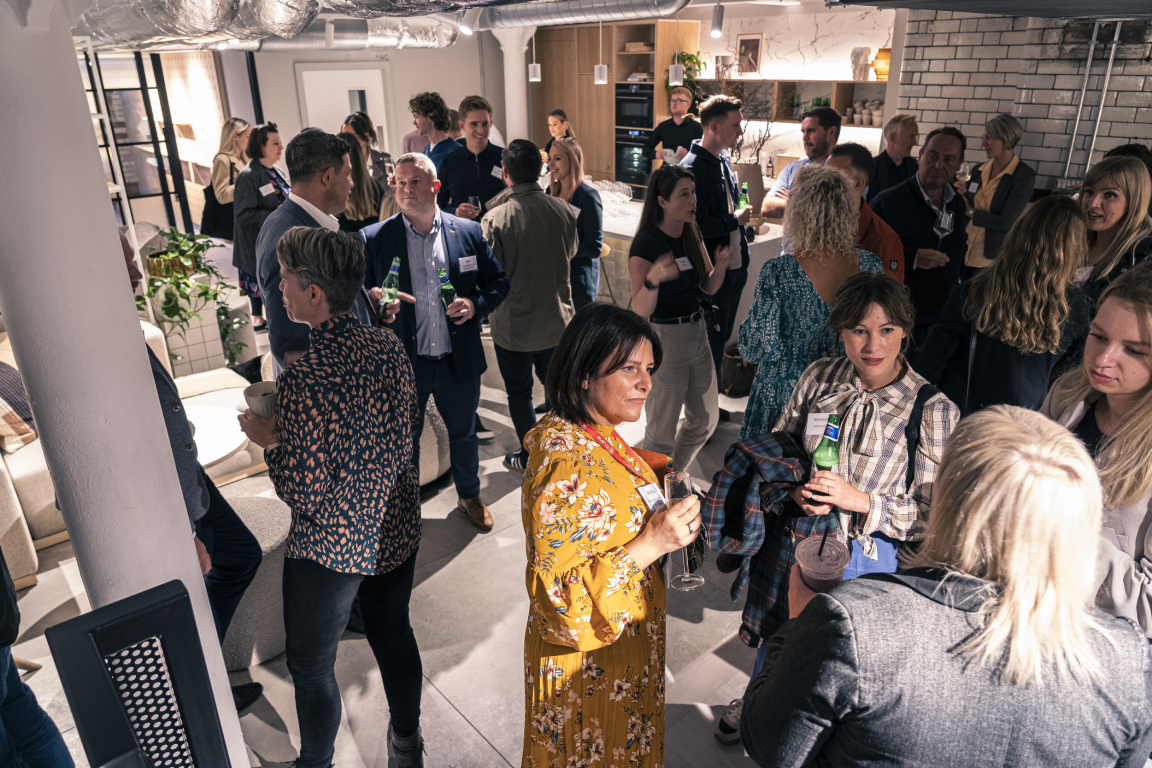
Credit: Tim Ainsworth
Future
As the session drew to a close, a point from the audience served as reminder that Manchester city centre is "right at the start of its journey" compared to the likes of Paris with 150-years of maturity of family-friendly living under its belt. "Manchester's seen a real step change in the last decade."
A final point from Dan referenced the need to look ahead: "We've got critical mass now that makes us global. So it's about making those commitments to invest in our neighbourhoods and communities to give this city real longevity."
We'd like to say a huge thank you to our panellists and audience. Plus a special thank you to our sponsors Brunner, Karndean, VADO - all partners at Material Source Studio.
Click here to see all our upcoming events and seminars - we look forward to welcoming you again soon.






